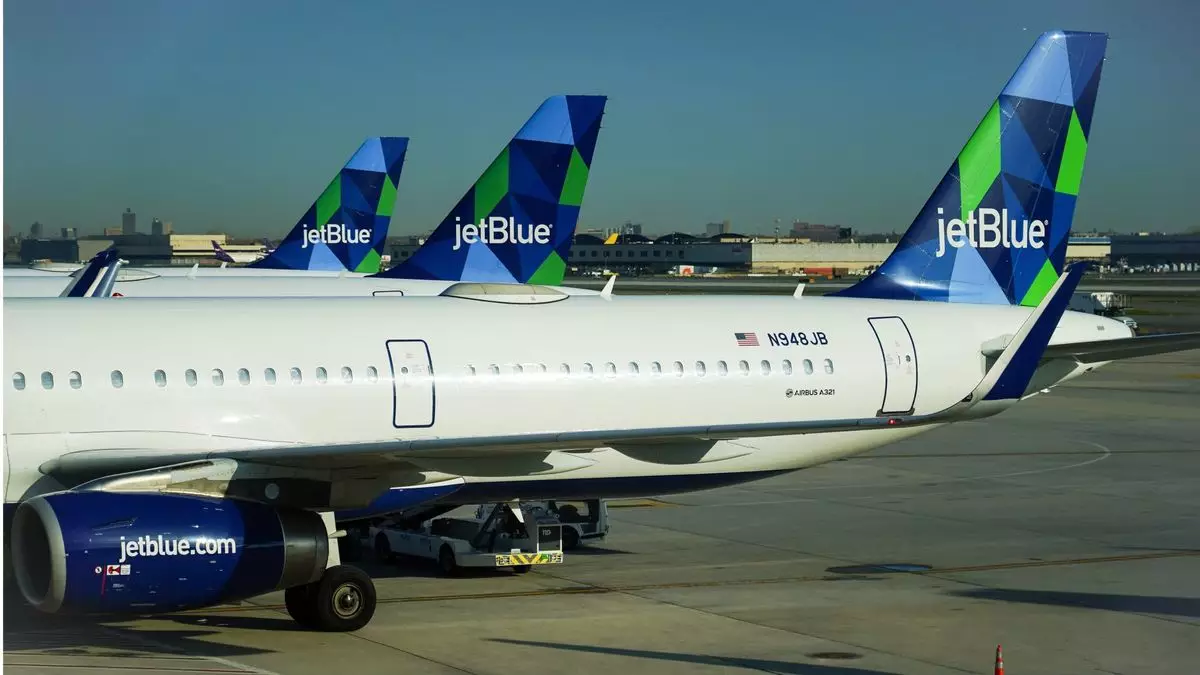In a significant regulatory move, JetBlue Airways has been penalized with a $2 million fine by the Department of Transportation (DOT) due to chronic delays affecting a number of its flights during 2022 and 2023. This unprecedented action serves not only as a punitive measure against one of the largest airlines in the United States but also as a critical reminder of the broader issues plaguing air travel today. The fine was primarily based on the consistent failure of four specific routes to arrive within 30 minutes of schedule over multiple months, raising alarms about unrealistic scheduling practices that could deceive customers seeking timely transportation.
Chronic flight delays frequently have far-reaching consequences that extend beyond mere inconvenience to passengers. They can create a cascading effect that disrupts other connecting flights, causes headaches in airport operations, and lowers the overall quality of service. The DOT’s investigation into JetBlue marks a pivotal moment for the sector, as it sets a precedent for the enforcement of stricter guidelines against airlines that fail to adhere to reasonable operational standards. This fine could trigger a ripple effect, prompting other carriers to scrutinize their scheduling practices to avoid similar penalties.
In response to the fine, JetBlue stated that it has invested substantial resources in an effort to enhance operational reliability, particularly in terms of reducing delays. The airline has asserted that external factors, such as air traffic control (ATC) staffing shortages, have significantly impacted its ability to maintain punctuality, especially within its principal markets located in the Northeast and Florida. While the airline’s efforts are commendable, pointing fingers at external sources does not absolve JetBlue of responsibility for its scheduling. An airline must balance operational efficiency with realistic expectations, considering the potential challenges they might encounter.
JetBlue’s call for the modernization of the air traffic control system further highlights a critical infrastructure issue that affects not only its operations but the greater airline industry as a whole. Currently, the U.S. air traffic control system is struggling with outdated technology and insufficient staffing levels, which have proven detrimental to flight schedules across the nation. According to the FAA, the projected hiring of an additional 2,000 controllers could ease existing shortages, yet until these personnel gaps are filled and systems are updated, airlines may find themselves caught in a continual struggle with delays and penalties.
Under the terms of the settlement with the DOT, JetBlue has agreed to allocate $1 million toward compensatory measures for customers affected by delays or cancellations attributable to the airline itself, rather than external factors like weather. These payments, which take the form of flight vouchers, emphasize the airline’s commitment to customer satisfaction. However, while the financial settlement may provide some relief to affected passengers, it is crucial for JetBlue to focus on long-term solutions that fundamentally improve its operational performance.
Historically, JetBlue has struggled with punctuality, often ranking poorly among major U.S. airlines. In fact, data shows that in 2024, JetBlue managed an on-time performance rate of only 74.5%, outpacing only one other airline among the country’s largest carriers. These metrics disclose an underlying trend that presents a serious concern for potential travelers. With an alarming 31.5% of flights delayed in 2023 alone, JetBlue must re-evaluate its current practices to regain consumer trust and loyalty moving forward.
In a market that is increasingly competitive and customer-driven, JetBlue must confront its challenges head-on. The company’s focus should not only be on compliance with regulatory standards but also on enhancing the overall travel experience for its customers. By refining scheduling practices, investing in technology, and actively participating in discussions about ATC reforms, JetBlue can position itself for success in the long term. The recent fine serves as a clear signal that the airline industry must evolve, holding itself accountable for not just profits but also the satisfaction and safety of its passengers.


Leave a Reply